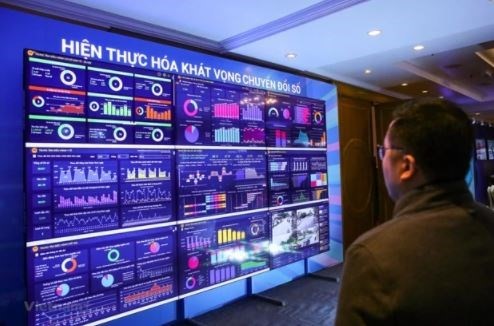
|
Getting your Trinity Audio player ready...
|
In a significant initiative towards embracing digital evolution, Ho Chi Minh City has recently established the Digital Transformation Centre (DXCentre), aimed at providing crucial support for agencies, organisations, and enterprises venturing into digital realms. The centre’s core mission is to explore, pilot, and transfer digital technology products, leveraging data and digital technologies to propel the city’s digital services for both citizens and enterprises.

DXCentre strategically deploys digital and data technologies to foster collaboration, mobilise resources, and develop a robust digital government. Operating an advanced data centre and transmission network ensures information safety while guiding stakeholders in implementing digital platforms, developing services, and creating smart urban areas.
DXCentre plays a pivotal role in Ho Chi Minh City’s ambition to be at the forefront of digital transformation in Vietnam, with a strong emphasis on making administrative procedures easily accessible online. The city currently boasts over 7,000 ICT businesses, contributing to a staggering e-commerce value of USD 7.8 billion, nearly half of the country’s total.
To achieve its digital transformation targets by 2030, the city aims to position itself as a healthcare hub within Vietnam and the ASEAN region. This involves establishing a medical ecosystem comprising 6,000 modern clinics and hospitals that integrate artificial intelligence (AI) in disease diagnosis and treatment. Additionally, Ho Chi Minh City envisions a thriving digital economy, anticipating contributions of 25% and 40% to the city’s Gross Regional Domestic Product (GRDP) in 2025 and 2030, respectively, to maintain its leading economic position nationally.
Crucially, DXCentre is not limited to infrastructure provision. It is also tasked with conducting training programmes and offering consultations on digital transformation, particularly targeting small and medium-sized businesses. This initiative underscores the commitment to inclusivity, ensuring that the benefits of digital transformation extend across all sectors of the city’s economy.
The establishment of DXCentre in Ho Chi Minh City marks a pivotal moment in its journey towards becoming a digital powerhouse. By focusing on technology-driven solutions, collaboration, and strategic planning, the centre aims to accelerate the city’s digital landscape, ultimately contributing to its vision of a progressive and digitally advanced future.
In tandem with its efforts to fortify transportation infrastructure, Ho Chi Minh City is taking significant steps towards the development of a sophisticated smart traffic management and operation system, aimed at alleviating congestion and reducing accidents in the vibrant southern economic hub.
A crucial aspect of this initiative is the establishment of a smart traffic operation centre, making Ho Chi Minh City the pioneer in this realm since its operational launch in 2019. This centre has played a pivotal role in augmenting the efficiency of traffic monitoring and regulation, contributing to the city’s broader vision of becoming a digital powerhouse.
Doan Van Tan, Director of Ho Chi Minh City’s Urban Traffic Management and Operations Centre, notes that the city is investing in completing its transport system and major projects via the Transit Oriented Development (TOD) model, enhancing both physical infrastructure and integrating digital platforms for improved traffic management.
This development aligns with the city’s overarching digital transformation strategy, as highlighted by the recent establishment of the Digital Transformation Centre (DXCentre). The DXCentre aims to support agencies, organisations, and enterprises in their digital endeavours, fostering collaboration, mustering resources, and driving the development of a robust digital government.
By intertwining the progress in transportation infrastructure and the strides in smart traffic solutions, Ho Chi Minh City is not only addressing the immediate challenges of congestion and accidents but is also laying the groundwork for a technologically advanced and interconnected urban environment.
















